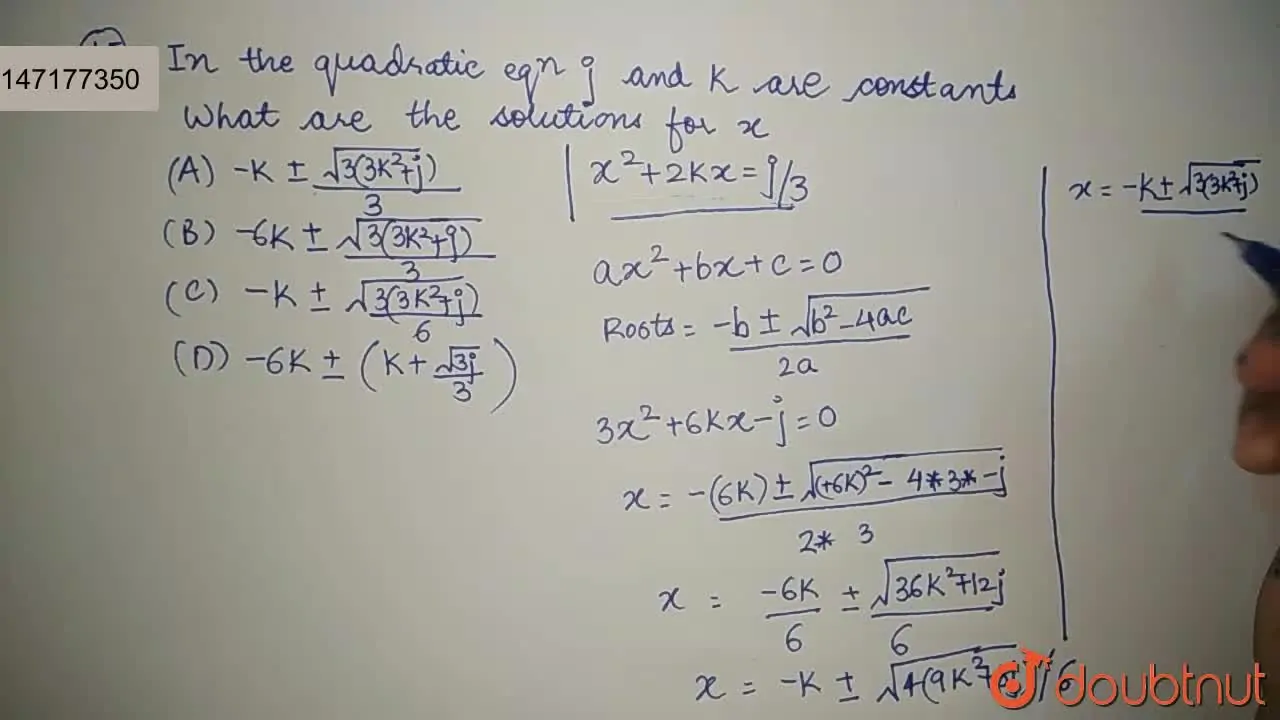In the quadratic equation above, j and k are constant. What are the solutions of x ?
The correct Answer is:A
Difficult: Hard
Category: Passport to Advanced Math/ Quadratics
Strategy Advice: When an equation involves fractions, it is usually best to clear the fractions first to avoid messy calculations later. Also, when the answer choices involve square roots, you'll need to use the quadratic formula.
Getting to the Answer: Multiply both sides of the equation by 3 to eliminate the fraction on the right side, and then subtractt j from both sides to yield . This means . Substitute these values into the quadratic formula, and then simplify as shown below:
Choice (A) is correct.
Related Playlists
Similar Questions
x2−k2x=2p
In the quadratic equation above, kandp are constants. What are the solutions for x ?View Solutionrx2=1sx+3
A quadratic equation is provided above, where r and s are constants. What are the solutions for x?View Solution√k=2−x=0
Is the equation above, k is a constant . IF x=9 what is the value of k?View Solution11x−24y=8
kx−36y=5
In the system of equations above, k is a constant. If the system has no solutions, what is the value of k?View Solution12x−56y=5
−2x+ky=3
In the system of linear equations above, k is a constant. If the system has no solution, what is the value of k?View Solution32x−12y=7
kx−6y=4
In the system of linear equation above, is a constant. If the system has no solution, what is the value of k?View Solutionx+7y=−10
3x−4y=k
In the system of equation above,k is a constant. IF (a,b) is the solution to the system, what is the value of a, in terms of k?View Solution(k−1)x+13y=4
k(x+2y)=7
In the system of linear equations above, k is a constant. If the system has no system, what is the value of k?View Solution{34x−12y=12kx−2y=22
If the system of linear equations above has no solution, and k is a constant, what is the value of k?View Solution(2x2+3x−4)(3x+2)=6x3+ax2−6x−8
In the above equation, a is a constant. If the equation is true for all value of x, what is the value of a ?View Solution


